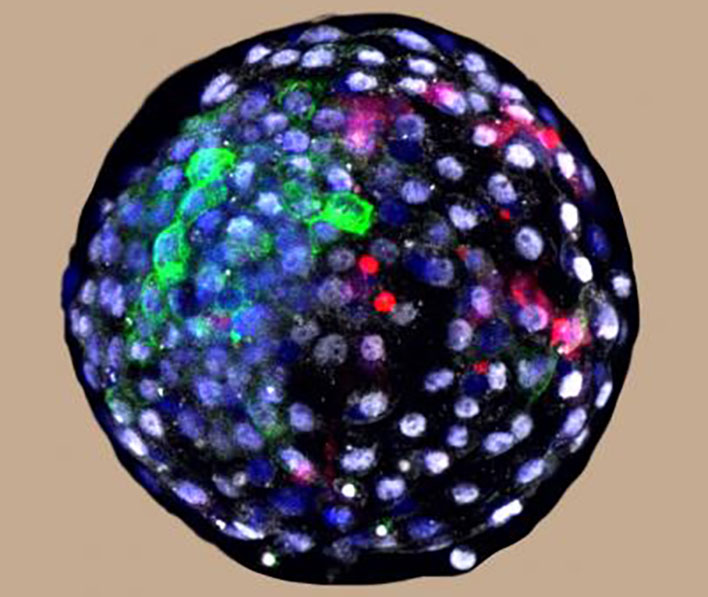Scientists Go Bananas Creating Human-Monkey Hybrids, Sparking An Ethical Firestorm
In this study, the research team started off with macaque monkey embryos and then injected them with human stem cells. Over 130 embryos were used, each injected with 25 human cells. Ten days after the injection of human extended pluripotent stem cells, 103 embryos remained viable. However, after just 19 days, the number of living embryos dropped dramatically to just three. The researchers were relieved to discover that a high percentage of the human cells remained in the still-viable embryos.
Meanwhile, you're probably thinking, why would researchers actually want to create these chimeric embryos in the first place?
"From these analyses, several communication pathways that were either novel or strengthened in the chimeric cells were identified," explained lead author Izpisua Belmonte, who is a professor at the Gene Expression Laboratory at the Salk Institute for Biological Sciences. "Understanding which pathways are involved in chimeric cell communication will allow us to possibly enhance this communication and increase the efficiency of chimerism in a host species that's more evolutionarily distant to humans."

Credit: Weizhi Ji, Kunming University Of Science And Technology
There has always been an interest in the bond between primates and humans, due to our close genetic familial ties. However, these researchers may have gone a step too far, according to some people. The following statement compounds the concerns over the research team's motives:
Generation of a chimera between human and non-human primate, a species more closely related to humans along the evolutionary timeline than all previously used species, will allow us to gain better insight into whether there are evolutionarily imposed barriers to chimera generation and if there are any means by which we can overcome them.
The bolded excerpt here is of particular interest; why would we want to cross the barrier to creating fully functional human-monkey hybrids or any hybrids involving humans? The researchers aim to help develop transplantable tissue and organs for humans and even develop new drug screening processes. But that of course raises many ethical concerns, especially if we're talking about using these chimera beings to harvest organs.
"The scientists behind this research state that these chimeric embryos offer new opportunities, because 'we are unable to conduct certain types of experiments in humans,'" remarked Dr. Anna Smajdor of the University of East Anglia Norwich Medical School in a statement to the BBC. "But whether these embryos are human or not is open to question."
However, Belmonte counters that "it is our responsibility as scientists to conduct our research thoughtfully, following all the ethical, legal, and social guidelines in place."
What do you think of this wild development with human-monkey chimeric embryos? Is this a slippery slope that could lead to unwelcome consequences in the future, or do the ends justify the means when it comes to harvesting replacement organs for humans? Tell us your thoughts in the comments below.
(Top Image, Credit: 20th Century Fox)


